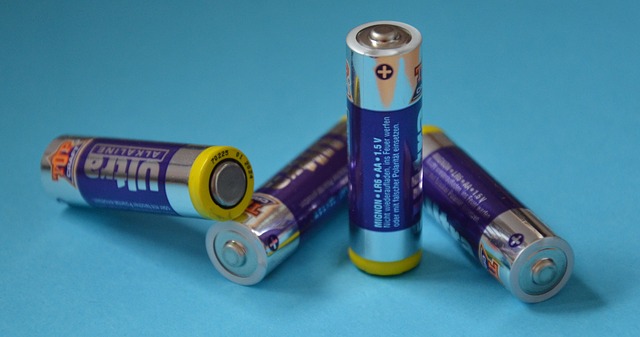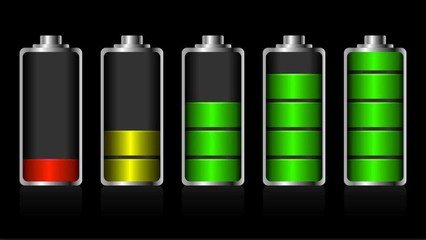Which batteries last longer alkaline or lithium?
Dec 06, 2019 Pageview:1387
Batteries are the future of renewable energy. They have become part and parcel of our daily existence with every day bringing up newer technologies.
They are storehouses of energy, making them an excellent asset for portable devices. We find batteries in almost every electronic device in our homes. From headlamps to lanterns, GPS devices to the camera, Music players to other mobile devices, batteries run human life today.
So what is the ideal battery? This is a question everyone with an electronic device will be asking. First, it is a battery that delivers a balance of long-time use, high performance, and affordability. Second, the cells need to prove a low impact on the environment.
You will start to discover these features when you decide to dig into battery details. Since there are different battery chemistries today, these features are essential for getting the best for your device.
Lithium and alkaline are the two most popular battery types in the market today. They are found in almost every portable device at home. However, they do not provide the same performance as they have definite differences.
One of the significant differences is durability. In this guide, we will compare, in detail, the performance of lithium and alkaline batteries.
How much longer do lithium batteries and alkaline batteries last?
Lithium and alkaline batteries are referred to as single-use batteries. The reason simple, you use the ones and dispose of. Lithium and alkaline batteries are not rechargeable. When the drain, do not attempt to recharge, as this can lead to explosions and fire.
To understand how long the batteries last, we are going to look at them individually in terms of use.
Single use alkaline batteries
These are the most common batteries in the world. They contain an alkaline electrolyte, commonly potassium hydroxide.
They are suitable for low drain devices. Such devices include LED headlamps, LED flashlights, remote controls, clocks, radios, and similar devices. They can also power a few moderate drain devices like light with incandescent bulbs.
The batteries can also be used in several high-drain devices. Consider when they are used in cameras, digital cameras, and similar instruments. However, their life expectancy is sharply reduced, making them lose their use rapidly. The reason is, Alkaline batteries have high initial capacity, yes, but high drain devices a high amount of draw. The pressure force energy draws to rise swiftly and quickly. This factor is why it is not recommendable to use alkaline batteries in a digital camera; it will only run for a few hours.
The life expectancy of these batteries is quite low, depending on the device they are running in. They are manufactured with a nominal voltage of 1.5V. This voltage declines steadily with more than I volt every time the battery discharges. They can produce approximately 20 to 40 flash photos in a digital camera.
On average, an alkaline battery can last for a few weeks in a low-drain/low-us battery. In high-drain components, they only give you hours of usage. They have an estimated shelf life of 5 to 7 years operating at a temperature of 68 degrees F/20 degrees C.
Lithium batteries
Lithium batteries contain lithium, a light metal that gives the batteries the highest energy density. They are not battery cell in the same capacity that can beat such energy.
With this feature, lithium batteries can store more energy than alkaline ones. They are more potent than any other single-use battery with the same size and application. Apart from this, they perform exceptionally in high and low temperatures, making them suitable for many portable devices.
They have a high voltage capacity that makes them too powerful. LIBs can, therefore, damage the circuitry of some devices.
They are best suited for high-drain devices that have high-performance features. In digital cameras, they can last twice, or even more, than alkaline batteries under the same usage conditions. They are also used in some moderate device but should not go in low-drain ones.
You can get 100 to 200 flash photos in a digital camera, with superior functionality in extreme temperatures. They have a longer shelf life ranging from 10 to 15 years.? ?
Why do lithium batteries last longer?
Lithium batteries last longer because of several factors:
· They contain the lithium metal
Lithium metal is a power that gives the cells high power. For this reason, they keep more energy than other single-use batteries. Cells perform well based on the materials that they are made with.
· High voltage
The nominal voltage for lithium batteries is 3.0V compared to 1.5V in alkaline batteries. This makes them more potent with double the power contained in other single-use cells. They are excellent generally, coming with 10 – 15 years of estimated shelf life.
· They are made for high performance
Devices that use batteries differ widely in power needs. Things like digital cameras and GPS devices consume a lot of power. They, therefore, require batteries that can satisfy such needs. Lithium batteries are made for these features.
What is the difference between lithium and alkaline batteries?
Many people get confused when you talk about lithium and lithium-ion batteries. One of the most significant differences is that lithium-ion batteries are rechargeable, whereas lithium batteries are single-use, just like alkaline batteries.
Here are the significant differences between lithium and alkaline batteries:
Power: lithium batteries are potent. They are used for powering high-drain devices like digital cameras. They are a wonderful solution for many who need great portable energy solutions.
Price. Because of their high energy, lithium batteries are costly. They cost more than down the amount of alkaline batteries
Voltage. The nominal voltage of lithium batteries is about 3V, while alkaline ones have 1.5V.
Operating temperature. Lithium batteries are more tolerant of extreme temperatures. This is one of the factors that make the last even longer.
Conclusion
Many people want batteries that are powerful and last longer. But they fail to understand that some batteries do not meet the power consumption requirements for the devices. If you are replacing an alkaline battery with a lithium one, ensure it has appropriate voltage to avoid damaging the components.
- Prev Article: Good Cheap 18650 Battery
- Next Article: Are alkaline batteries the same as lithium?
Leave Message
Hottest Categories
-
Hottest Industry News
-
Latest Industry News












